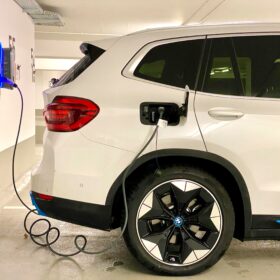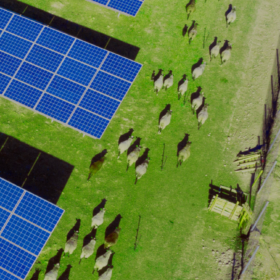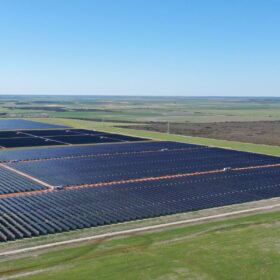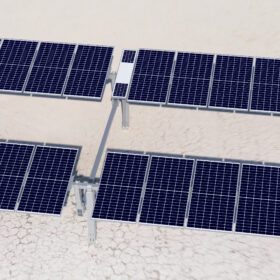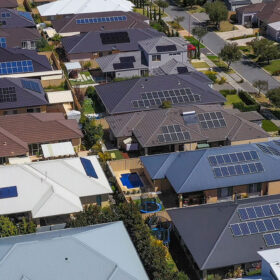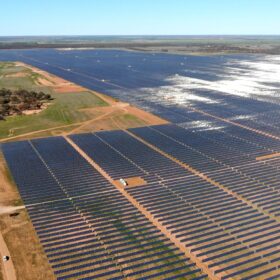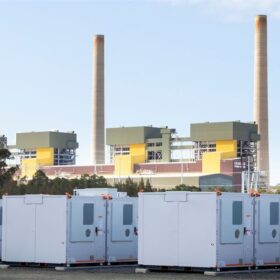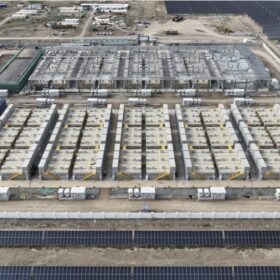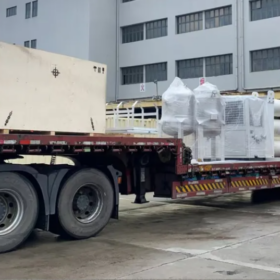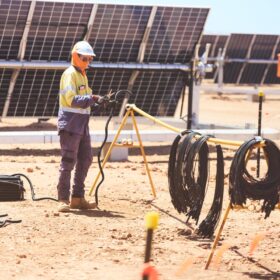Scientists propose novel Moon perovskite cell manufacturing strategy
German scientists have proposed power generation for future habitats on the moon could be achieved by manufacturing halide perovskite cells locally, using regolith-based moonglass.
March electric vehicle sales leave February figures in the dust
New figures released by the Electric Vehicle Council show electric vehicles accounted for over 14% of all new cars sold in Australia in March 2025, the highest monthly share on record and drives the sector toward its next evolution: vehicle-to-grid technology.
Potential of chalcogenide pervoskite for next generation solar cells: study
Researchers from the Australian Centre for Advanced Photovoltaics and the University of New South Wales have published findings on the potential for next generation solar cells of chalcogenide pervoskite BaZrS3.
Construction starts on New Zealand’s 280 GWh agrivoltaic project
Construction on New Zealand’s largest solar farm project has begun at Te Aroha in Waikato, marking a significant milestone for the country’s renewable energy future and the potential of agrivoltaics.
Potentia Energy completes acquisition of over 1 GW renewable energy assets
Sydney-headquartered Potentia Energy has acquired controlling stakes in almost 200 MW of solar projects in a portfolio of more than 1 GW of renewable energy assets across Australia.
Battery energy storage systems support Samoa’s month-long power crisis
Tesla specialists are on the ground assisting Samoa’s electric power corporation engineers to ensure its battery energy storage systems are operating to support Samoa’s energy needs during the current power crisis.
GameChange Solar trackers and racking meet Australian standards
United States solar tracker and racking specialists GameChange Solar have successfully completed a structural and electrical design compliance review for two of its tracking systems, for use in the Australian market.
Senate inquiry recommends households install rooftop solar and batteries
The Australian senate inquiry into residential electrification final report gives bipartisan support to leverage rooftop solar and recommends federal, state and territory governments promote the uptake of consumer energy resources.
Canadian Solar’s first anti-hail module installation set for Flow Power project
Canadian Solar’s anti-hail technology is to be installed at a new South Australian solar battery energy storage project by Flow Power in the Coonawarra wine region, 370 kilometres southeast of Adelaide.
Acciona closes $453 million green finance deal for Aldoga solar farm
Spanish developer Acciona has closed a $453 million syndicated green loan for the construction and operation of its 480 MWp Aldoga Solar Farm on the Queensland central coast.

